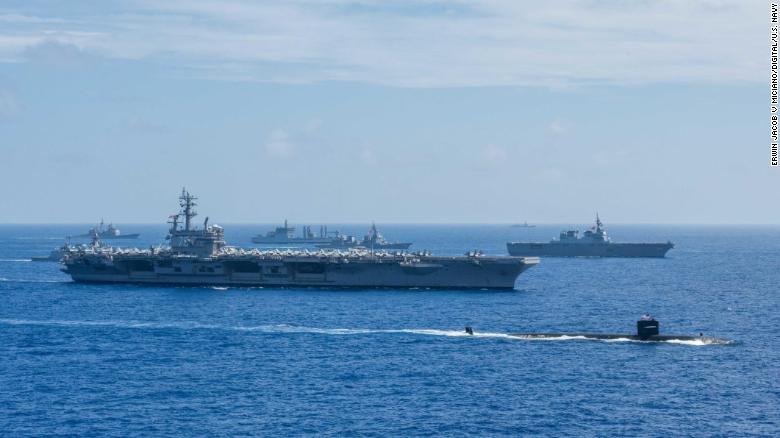Hong Kong Australia will join India, the United States and Japan in next month’s Malabar naval exercises in the Indian Ocean, in a move that is expected to strengthen the military relationship between the four democracies amid increased tensions with China.
Conducted annually since 1992, the maneuvers have grown in size and complexity in recent years to address what the US Navy has previously described as a “variety of shared threats to maritime security in the Indo-Asia Pacific.”
The participation of Australia means that all four members of the so-called Quad will be participating in the exercises for the first time since 2007.
The Quad, or Quadrilateral Security Dialogue, is an informal strategic forum for the US, Japan, Australia and India, featuring semi-regular summits and information exchanges between the four nations.
While not a formal military alliance like NATO, it is seen by some as a potential counterweight to growing Chinese influence and alleged aggression in Asia-Pacific. The collation has been denounced by Beijing as an anti-China bloc.
The Australian and Indian defense ministries announced the expansion of the drills, which had been long-speculated, late Monday.
Australian Defense Minister Linda Reynolds said the Malabar exercises were key to enhancing Australia’s maritime capabilities, and showcased the “deep trust between four major Indo-Pacific democracies and their shared will to work together on common security interests.”
Australia’s previous participation in the drills in 2007 sparked diplomatic protests from China. Relations between China and Australia have since deteriorated, however, with the two countries locked in a series of long-running trade disputes.
Other members of the Quad have also seen tensions with Beijing spike in recent months. Indian and Chinese troops clashed along the Line of Actual Control — the de facto border between the two countries in the Himalayas — in June.
Japan and China remain at odds over the disputed Senkaku Islands, named the Diaoyus by China, where Beijing has increased the presence of its coast guard vessels.
The US meanwhile has increased the tempo of its naval and air missions in the South China Sea, while pushing back at Beijing’s claims to the vast waterway.
In a statement Monday, India’s Defense Ministry said the four participants “collectively support free, open and inclusive Indo-Pacific and remain committed to a rules based international order.”
The exercises will begin in November in the Bay of Bengal and Arabian Sea, India said.
Malabar began as a bilateral exercise between India and the US. Japan became a permanent Malabar member in 2015.
Previous exercises have taken place in the Indian Ocean as well as off the coast of Japan a year ago, and around the US Pacific territory of Guam and in the Philippine Sea in 2018.
The 2017 exercises in the Indian Ocean involved aircraft carriers from the US, India and Japan in what were then described as the largest naval exercises in the region in two decades.
>>>>



